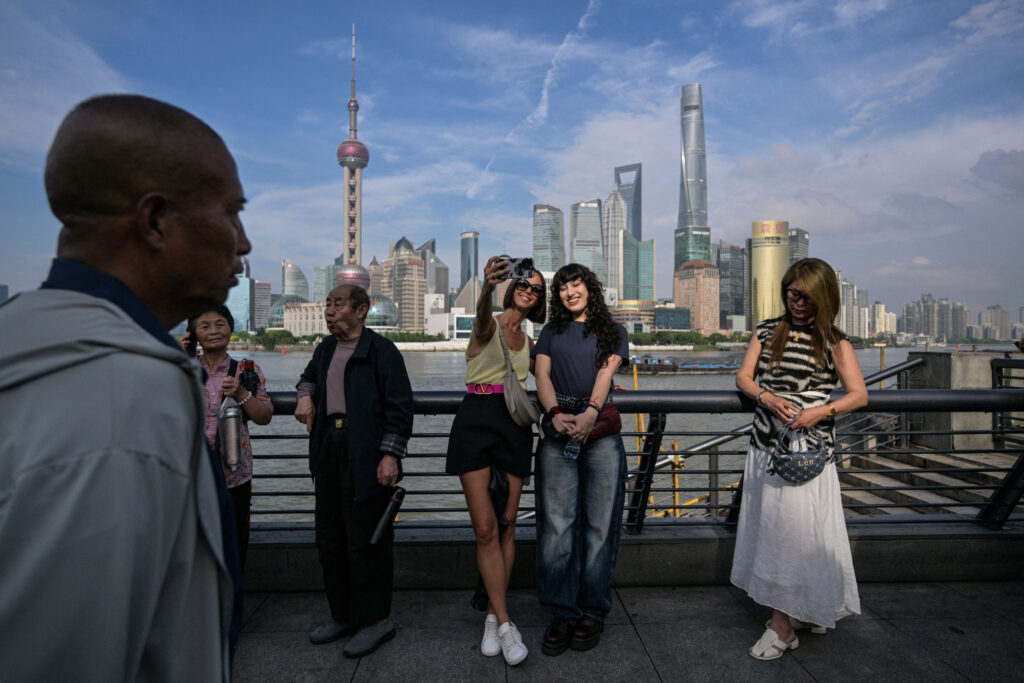China has expanded its visa-free entry policy to more countries, allowing citizens from an additional four nations to visit for up to 30 days without a permit.
This brings the total number of visa-exempt countries to 47, with another 16 qualifying for 10-day exemptions, as shown on the Newsweek map below.
Why It Matters
Inbound tourism to China is rebounding, with 132 million international visits recorded last year—97 percent of 2019 levels, according to government data. The momentum has carried into 2025, with 35 million arrivals in the first quarter, a nearly 20 percent year-over-year increase, said China’s Ministry of Culture and Tourism.
Total international visitor spending last year was up to 93.5 percent of pre-pandemic levels, accounting for 0.5 percent of China’s GDP—nearly $100 billion—according to the country’s commerce authorities.
China’s growing visa-exemptions list shows the country is determined to foster an open global economy, Chinese Foreign Ministry spokesperson Lin Jian told reporters last week. Observers say the visa exemptions will also ease business and technical exchanges in sectors such as renewable energy.
Amid an intensifying trade war and geopolitical rivalry with the United States, China will see a strategic benefit in opening up to the rest of the world at a time when the West is trying to shut it out.
Newsweek reached out to the Chinese Foreign Ministry by email with a request for comment.
What To Know
Beijing on Monday announced the start of visa-free travel for passport holders from Saudi Arabia, Kuwait, Oman and Bahrain on a one-year trial basis.
China has in recent years ramped up political and economic engagement with the Middle East, capitalizing on the U.S.’s declining influence and framing itself as a stable alternative following decades of U.S. military intervention.
Liu Zhongmin, a professor from the Middle East Studies Institute of Shanghai International Studies University, told the Chinese state-run Global Times newspaper that the exemptions were a major step toward deepening people-to-people exchanges with the region.
With the announcement, all six members of the Gulf Cooperation Council—a regional bloc that also includes Qatar and the United Arab Emirates—now enjoy some form of visa-free travel to China.
The move brings China’s visa-free “circle of friends” to 47 countries, Foreign Ministry spokesperson Mao Ning said.
Citizens of the United States, United Kingdom, Canada and Russia are permitted 10-day visa-free transits as well as access to two dozen provinces and regions—provided they show proof of onward travel upon entry, according to the policy.
The expansion follows China’s decision in December to implement visa exemptions for travelers from nine countries, including Japan and eight European states.
What People Are Saying
Mao Ning, Chinese Foreign Ministry spokesperson, told reporters last month: “China has given visa-free status to all Gulf Cooperation Council countries. We welcome more friends from GCC countries to visit China anytime.”
Julia Simpson, president of the World Travel and Tourism Council, said in an April press release: “Recent moves, such as refund-upon-purchase for international visitors and the expansion of visa-free access to international visitors show a smart, outward-looking strategy.
“This is long-term thinking in action, focused on competitiveness, experience, and re-establishing China’s position as a global travel and tourism leader.”
What’s Next
A forecast by the London-based World Travel and Tourism Council said China would continue its tourism comeback this year, estimating the industry would add $1.9 trillion to the world’s second-largest economy, support more than 83 million jobs and creating an additional 1.3 million.
By contrast, the U.S. economy could be in for a $12.5 billion—or 22.45 percent—tourism hit, the council warned last month, as vacationers look elsewhere amid reports of increased detainments at airports, which the Trump administration has defended as necessary for immigration control and national security.
“While other nations are rolling out the welcome mat, the U.S. government is putting up the ‘closed’ sign,” Simpson wrote.
The International Trade Administration did not immediately respond to Newsweek‘s written request for comment out of hours.
Read the full article here
